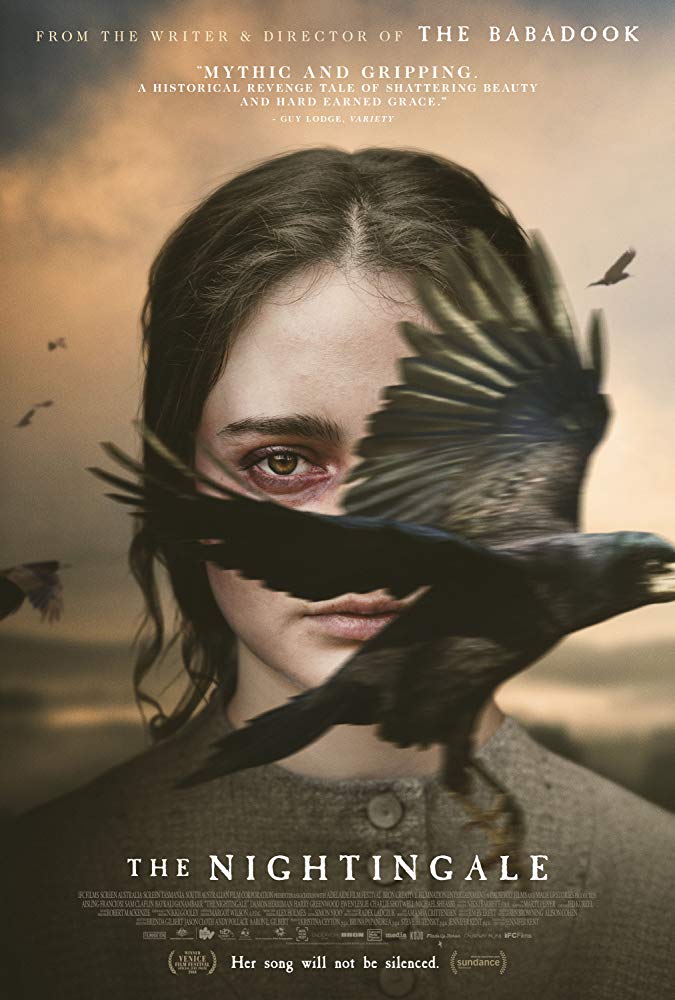Film Review: The Nightingale (2019)



Jennifer Kent’s second feature is just about as disturbing as a film can get. After raising hairs with her examination of contemporary trauma in The Babadook (2014), Kent has now focused her sights on historical and systematic causes of grief through the eyes of an Irish convict and an indigenous native of Tasmania circa 1825. The Nightingale is not an easy film to watch, but one that is important to see if conversations about the devastating effects of colonialism, genocide, patriarchy, and misogyny are ever to be had in a meaningful way. Films like this exist not to shock into revulsion, but to shock into action and understanding.

It’s easy to dismiss The Nightingale as a simple revenge thriller, but it’s much more complicated than that. The revenge angle is important, but it serves mostly as the drive behind a deeper exploration into the foul nature of racism, capitalism, and colonialism that dominated the white psyche of the 19th century and continues to do so today. It is not I Spit on Your Grave (1978), nor is it Soldier Blue (1970), but it could be argued that trace amounts exist within even if only on a surface level.

As an Irish convict, Clare (Aisling Franciosi) is subjected to the continued brutalities of the sadistic British Army officer (Sam Claflin) in charge of her release. After a monstrous act by the officer and his men, Clare hires an indigenous tracker named Billy (Baykali Ganambarr) to lead her through the bush in search of her tormentors. Along the way, Clare and Billy form an unlikely bond in their hatred of the British and shared trauma at their hands while the soldiers commit one cruelty after another.

Kent makes sure we understand and can justify Clare’s need for revenge and succeeds all too well. She establishes a demand for a vengeful catharsis within the first 30 minutes, but the actions of the soldiers never slows and never abates. The overlong runtime demands that this catharsis be thwarted several times and is the only technical fault I can find with the film. Still, the beautiful scenery and brilliant acting keep things running smoothly enough, even if the story could have been told with a half-hour shaved off.

The Nightingale is a brutal film. There’s no getting around that. Its subject matter and presentation are disturbing and horrific, but strangely, it isn’t overly gory. It calls to mind the 1985 Russian film Come and See, whose plot centers on horrible atrocities but doesn’t show them outright – instead opting to let the viewer fill in the gaps (a much more chilling notion). Falling just short of gratuitous, The Nightingale has no qualms with hammering home the violence and terror its protagonists eventually stand up to. They – and the enemies they face – tell just one story, but their plight represents the much larger history of Tasmania’s “Black War” and the exploitation of those bound to the British penal colony that was established there – especially the women.
